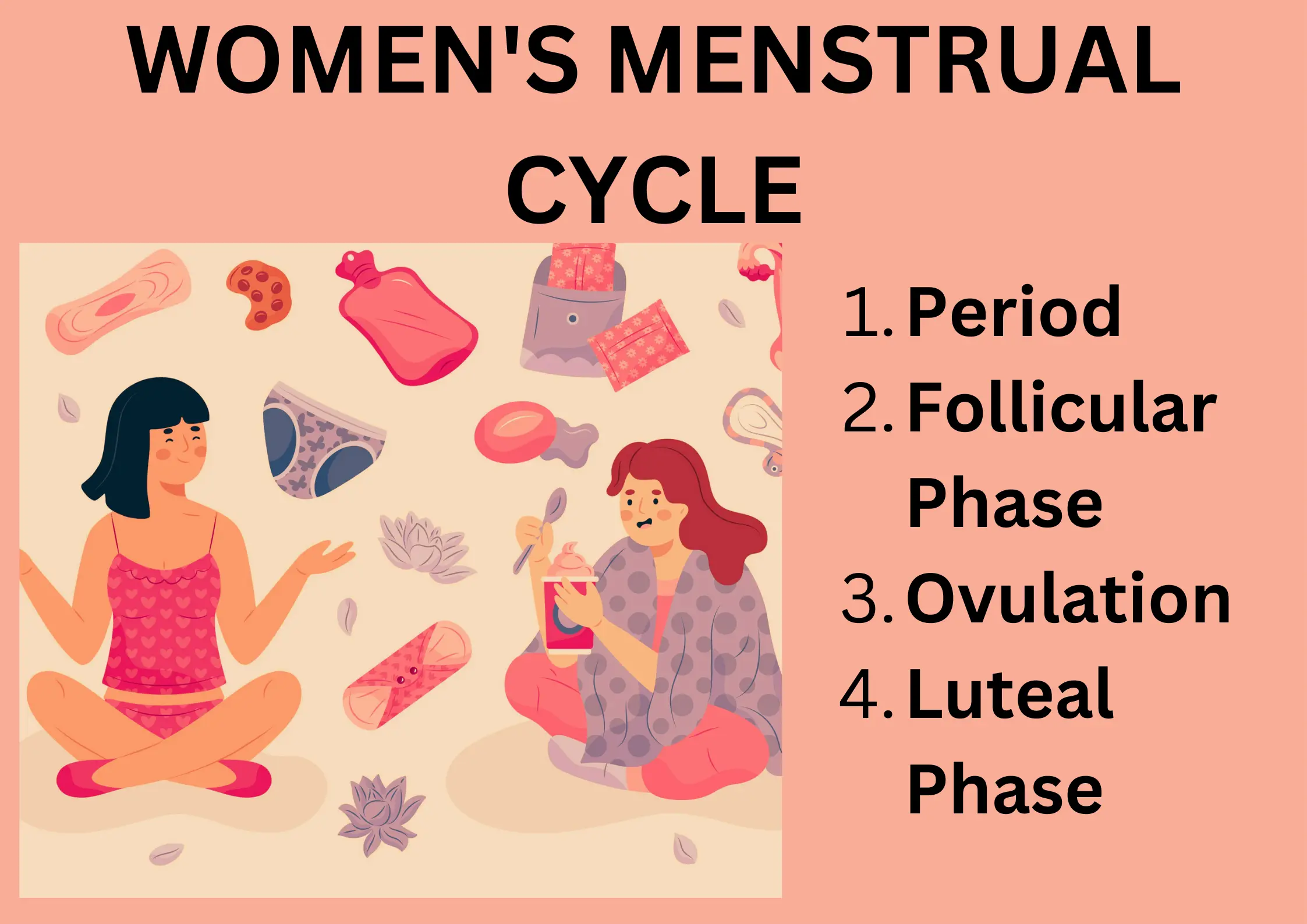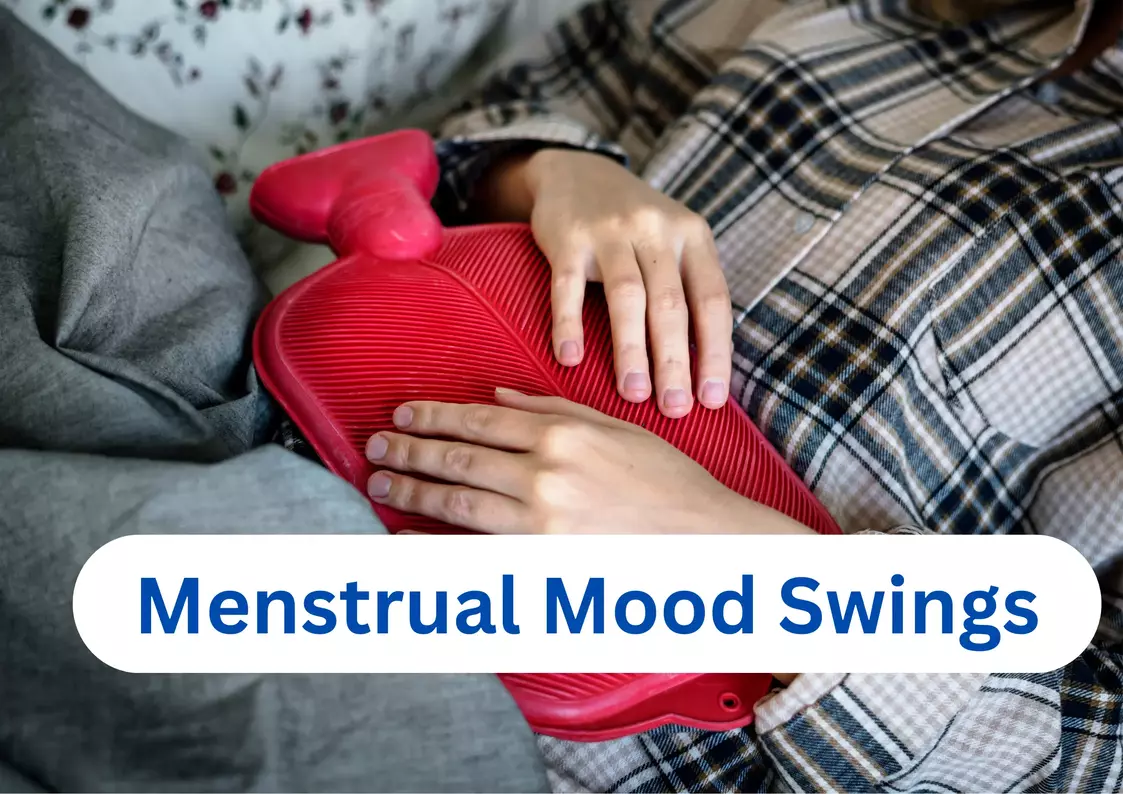Introduction
Studies show that about 80 % of women undergo mood swings and anxiety owning to their menstrual cycle. In addition, 20 -30% of them show substantial Pre-menopausal syndrome/P.M.S. that may disrupt their daily life, whereas 3-8% of them can suffer from PMDD or Premenstrual dysphoric disorder that has severe psychological outcomes. Therefore, proper diagnosis, regular medication, and a healthy lifestyle are essential for reversing these signs of P.M.S. or PMDD in women.
What are menstrual mood swings?
P.M.S. or PMDD is the sudden surge of the emotional outbreak and physical discomfort that women experience 1-2 weeks before the onset of their menstrual bleeding. These symptoms subside as the menses commence. You feel pesky, demotivated, sluggish, anxious, and angry without any reason whatsoever, and the physical pain adds up to it.
Some Common Symptoms of Menstrual Mood Swings
Mood swings are a common occurrence that various factors could cause. To determine If there is a link between your mood swings to your menstruation cycle, it’s essential to keep a tab of your symptoms during your processes and note them down. Here are the most common symptoms:
- Abdominal cramps
- Bloating
- Tenderness of the breast
- Acne
- Mood changes
- Extreme irritation
- Loss of sleep
- Sadness
- Gastrointestinal problems
- Headaches
It can severely affect working women’s work-life balance and affect their productivity. Unfortunately, due to the stigma and embarrassment associated with it and the discomfort of male managers and colleagues, most women tend to suppress these symptoms or resort to skipping office, giving other excuses. It worsens the situation, negatively impacting their career and workplace image while battling with P.M.S. or PMDD.
What is the reason behind Menstrual Mood Swings?
The exact reason for P.M.S. is yet undiscovered, but the probable cause seems to be the hormonal fluctuations associated with women’s menstrual cycle. A brief idea about the phases of the menstrual cycle and the hormonal levels with each step can give a fair idea about the symptoms that may occur.

Period
It occurs for 2-7 days as the women experience vaginal bleeding as the uterus sheds its internal linings.
Follicular Phase
This phase commences on the day the period starts and finishes with ovulation. The oestrogen level starts rising to facilitate the maturation of the ovarian follicles. Estrogen hormone levels closely control the level of serotonin, the happy hormone, and one starts to feel satisfied, energetic, and optimistic again. Acne problems begin to dissolve, and the skin looks clear and dewy.
Ovulation
Ovulation is the releasing of mature eggs into the uterus from the ovary, which starts roughly two weeks before the onset of your next period. The eggs, when not fertilized, are destroyed within the uterus and start the luteal cycle.
Luteal Phase
At this phase, the corpus luteum secretes progesterone, one that diminishes oestrogen levels. As a result, one starts to undergo P.M.S. symptoms. The body also has an inherent sense to balance energy storage and thereby reduce the level of oestrogen, which leads to a more energetic performance. This phase continues for the next 14 days until the start of menstruation.
How do you deal with Menstrual Mood Swings?
P.M.S. is a tricky situation, and dealing with it while working seems hopeless as from within, you don’t feel any urge even to move, let alone submit that presentation or attend that crucial meeting. So here, we will discuss some medical and lifestyle changes that can help working women make the best of their P.M.S.
You can start tracking your period dates and plan your activity calendar accordingly.
Read more about Menstrual Hygiene
Period
- During periods, cramping, vomiting, and physical discomfort will occur. Still, you can focus on calming activities like reorganizing your pending and present work, rearranging your workspace, and starting to initiate new and improved systems.
- As your body is undergoing a cleansing sort of phase, you will experience more inclination toward self-improvement and self-care. Avoid HIIT workouts. Sometimes, social media addiction causes a mood swing. Follicular stage
- The follicular stage is full of optimism and energy; you can take up challenging projects and venture into new work with unparalleled enthusiasm and inspiration. Submit that bold proposal that you are afraid to talk to your superior or if you are aspiring for a new job, make the switch as you will outshine yourself now.
- The luteal phase and ovulation period is a period of mood swings and anxiety. Stay away from arguments as you are most likely to lose control and spend time self-reflection and evaluating your present circumstances and future goals. Reconsider your business and personal situation. It is the ideal time to make life-changing decisions as you feel more demure and sad and thus not easily carried away by any external excitements.
PMDD and P.M.S.
Some medications and supplements can also help revert signs of PMDD and P.M.S.
- For severe cases of PMDD, doctors may prescribe antidepressants like SSRIs (selective serotonin reuptake inhibitors). It prevents the absorption of serotonin, like sertraline, fluoxetine (Prozac), and Paroxetine H.C.L.
- Take O.T.C. painkillers like Ibuprofen, naproxen, and aspirin to relieve the cramps, pains, and headaches.
- Your doctor may prescribe hormonal contraceptives like birth control pills for extreme cases of PMDD that will prevent ovulation and may also stop periods.
- Intake of food rich in calcium and vitamin D like milk and dairy products, green leafy vegetables, chia seeds, basil seeds, sprouts, oily fishes like sardine and salmon, lentils, broccoli, beans, and nuts can help deal with P.M.S. symptoms.
- Eat healthily and don’t go for junk, fried, or sugary food, as low serotonin levels often trigger this, leading to more anxiety. Limit your salt and caffeine intake and avoid alcohol altogether. Taking lavender tea, keeping a positive note on the desk/and taking a photo of a loved one/ or favorite plant would help relax and motivate for work.
- Do light exercises like yoga, breathing in and out, and meditation that will calm your mind and boost your mood.
- Always be aware and call emergency if you feel like harming yourself or anyone around you.
Conclusion
Though menstrual mood swings, anxiety, and depression are natural, women can’t control them. Now it is the time to realize this truth and help women by being supportive and understanding. Firstly, this P.M.S. is a very frustrating vicious cycle. Identify the common symptoms and make medical appointments to diagnose the root conditions. Don’t overdose on natural home remedies, as they can be equally harmful. Working women can benefit from these remedies and show their potential by properly organizing their official duties. If you are facing this issues, you can connect with our experts at United We Care.
| [1] | “Women’s health and the workplace: The impact of the menstrual cycle,” 2015. |
| [2] | A. J. Rapkin and S. A. Winer, “Premenstrual syndrome and premenstrual dysphoric disorder: quality of life and burden of illness,” Expert Rev. Pharmacoecon. Outcomes Res., vol. 9, no. 2, pp. 157–170, 2009. |











